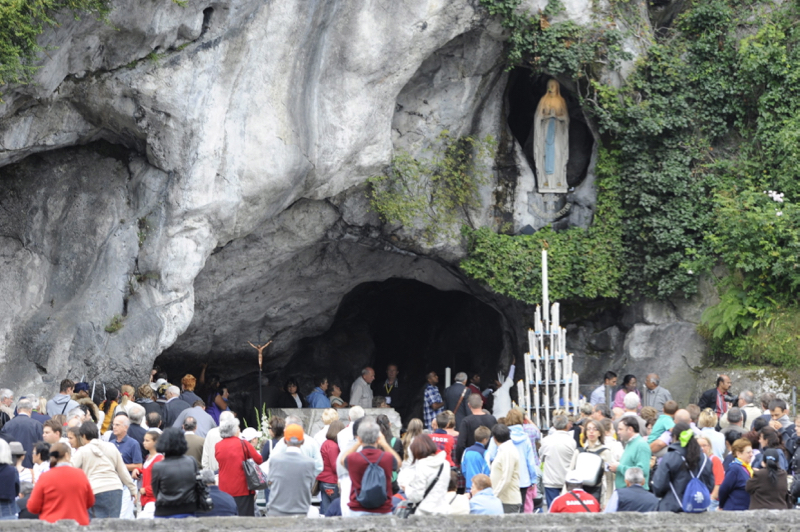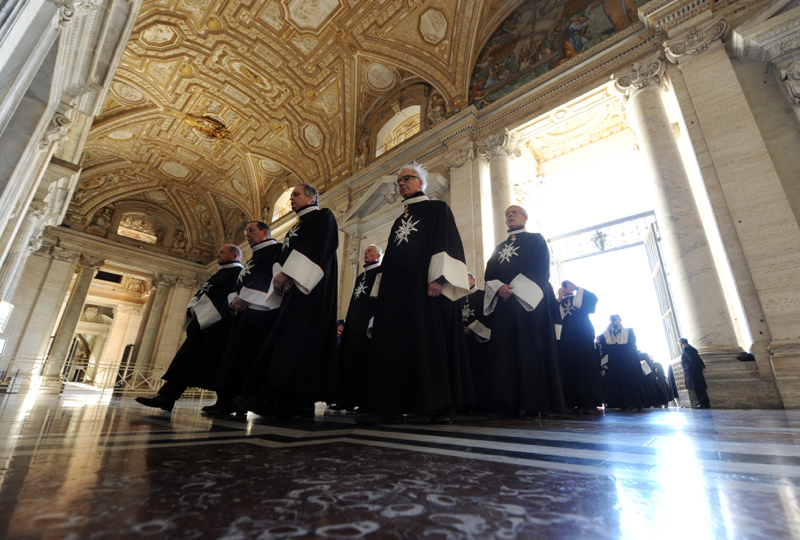The Order of Malta are planning to make substantial reforms to their governance structure just over a year after their leader stood down following a public stand off with Pope Francis.
Following a high level meeting of Knights from the 8 to 11 February in Rome, the order say that they are aiming to change their constitution to expand their “decision making base”, appoint more women to leadership roles and improve training for those in senior positions.
But the reform plans come as a power struggle is taking place inside the 11th century organisation. Earlier this month The Tablet reported that an elite group of knights had written to the Pope asking him to give them greater control of the order. He turned them down.
In a statement released on Monday the knights’ interim leader, Fra’ Giacomo dalla Torre del Tempio di Sanguinetto, spelt out the challenge: “After the constitutional crisis that we experienced between the end of 2016 and the beginning of 2017, the need to tackle a process of reform of our fundamental laws became evident.”
Last February Fra’ Matthew Festing, the order’s former Grand Master, resigned following his sacking of a senior German knight, Albrecht von Boeselager, who was accused of overseeing condom distribution in Myanmar.
Cardinal Raymond Burke, patron of the order and arch-Francis critic, had wrongly given Holy See backing to the dismissal in spite of letters showing the Pope and the Vatican wanted the matter resolved with dialogue. This precipitated a Holy See inquiry and Fra’Matthew’s departure. Francis then appointed a high ranking Vatican official, Archbishop Giovanni Becciu, to act as the Pope’s special delegate as the order started a reform process.
The knights are a religious order that combine a vast global charitable enterprise with a byzantine governance structure. They also enjoy a high degree of autonomy including diplomatic relations with countries across the world thanks to their sovereign status in international law.
Power in the order is, however, largely concentrated around a small group of professed knights in religious vows – similar to monks or friars – which make up of 60 of the 13,500 knights and dames worldwide. This group currently holds more than half of the positions on the Sovereign Council, the knights’ board of governance.
After refusing to agree to the professed knights’ request for more power, the Pope also ordered them to stop accepting new members to their group until reforms were finished.
There have long been concerns internally about the quality of religious formation for some of these knights, and ensuring their formation comes in line with Church norms is top of the Vatican’s agenda.
In a statement, the order said that a meeting of 140 members from five continents agreed that “strengthening the training of office bearers” was needed along with more people taking decisions, including women.
One reading of the tensions in the order is that it is a battle between the professed knights and a group – represented by von Boeselager – who want to focus on its charitable endeavours. Von Boeselager is a senior knight who sits on the sovereign council but has not taken full vows because he is married. He holds the title of Grand Chancellor, which is a foreign and interior minister role combined.
The so-called “religious” wing of the knights has accused the charity-minded group of wanting to create a “Catholic Red Cross”, while those focussed on the order’s good works feel the professed are overly concerned about liturgy and gaining control of the order. The order’s Latin motto is “Tuitio fidei et obsequium pauperum”, meaning “Defence of the faith and assistance to the poor”.
On Monday, Fra’ Giacomo - himself a professed knight - stressed the importance of the order’s charitable work.
“All our reflections must be seen in the context of the extraordinary development that our medical, humanitarian and diplomatic activities have recorded in the world in the last decades,” he explained.
Explaining that the path of reform is “more outlined now” Fra’Giacomo admitted that they “we will find other difficulties, other obstacles” as they bring about changes.
The order say that the next step is for a programme of reform to be agreed by the sovereign council, something that could face difficulties given the significant number of professed knights on that body. A general chapter, which normally meets every five years and elects members of the sovereign council, will then need to approve the new constitution.
Following the recent meetings, Archbishop Becciu said: “True fidelity, in the context of religious reforms, consists in knowing how to hold together a tenacious attachment to the values defined in the spiritual heritage of an order, and a bold conviction that the form with which these values must be incarnated must continually adapt to the specific conditions of each time and place.”
He added: “the reform aims to renew the forms of the Order founded on the same principles that inspired its creation almost one thousand years ago and its action.”
The big question is whether the order’s professed knights will come on board with the changes. A major test of this will take place later this year, on 2 and 3 May 2018, when the knights gather in Rome to elect a new leader.
PICTURE: The Knights of Malta marked its 900th birthday with a procession through St. Peter's Square at the Vatican on February 9, 2013 ©PA



 Loading ...
Loading ...